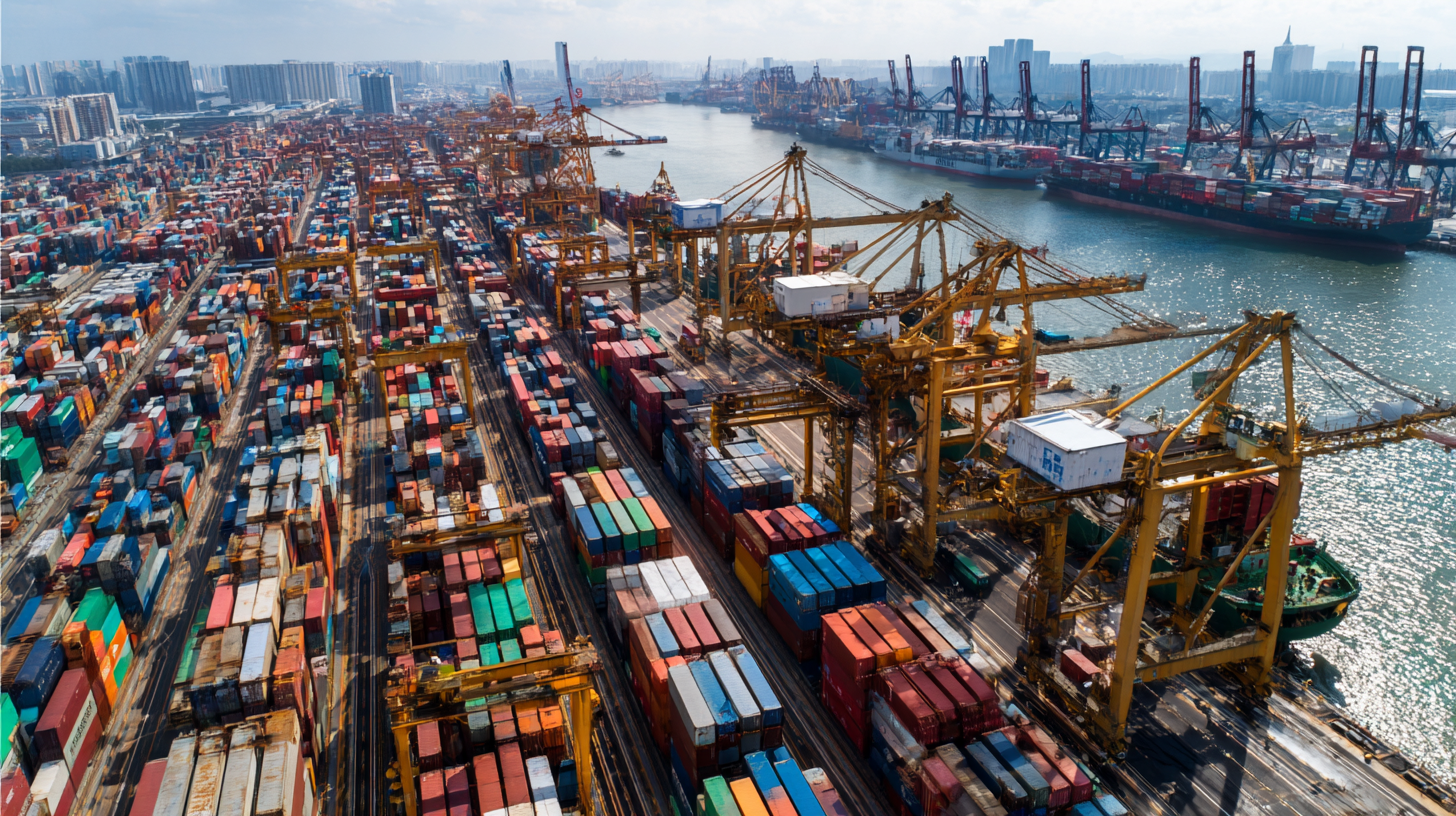
- sales@bjbod.com
- Mon - Sat at 7:00AM to 9:00PM

In the ever-evolving landscape of global trade, securing the best practices in importing and exporting Cnc Bearings is crucial for businesses aiming for success. According to a recent report by MarketsandMarkets, the global ball bearing market, which includes Cnc Bearings, is projected to reach USD 22.16 billion by 2025, growing at a CAGR of 7.8% during the forecast period. As the demand for precision components continues to surge across various industries such as automotive and aerospace, understanding the certification landscape becomes paramount. Navigating the complexities of international trade certifications not only ensures compliance with stringent regulations but also enhances product credibility and consumer trust. With the right certification strategy, companies can effectively streamline their processes and capitalize on the lucrative global market for Cnc Bearings.

In the competitive landscape of CNC bearings import and export, understanding the importance of global trade certifications is pivotal for success. According to the International Organization for Standardization (ISO), approximately 20% of international trade flows are impacted by non-compliance with regulatory standards, leading to significant economic losses. For CNC bearings, certifications such as ISO 9001 and ISO 14001 are essential, as they not only enhance product credibility but also streamline operations and improve customer trust.
Moreover, a report by the World Trade Organization (WTO) indicates that businesses with recognized certifications in place can experience up to a 65% increase in access to new markets. This underlines the fact that proper certification can act as a gateway for companies seeking to enter emerging markets where compliance is increasingly linked to operational legitimacy. As such, companies looking to thrive in the CNC bearings sector are advised to prioritize acquiring these global trade certifications, ensuring alignment with international standards and bolstering their competitive edge in the marketplace.
When importing and exporting CNC bearings, understanding the key trade certifications can make a significant difference in ensuring compliance and success in global markets. One of the most crucial certifications is the ISO 9001, which focuses on quality management systems. This standard not only enhances operational efficiency but also builds trust with customers worldwide, ensuring that the CNC bearings meet international quality benchmarks.
Another important certification to consider is CE marking, particularly in the European market. This marking indicates that the products comply with EU safety, health, and environmental protection directives. Having the CE mark can help manufacturers and exporters gain access to European markets, facilitating smoother trade operations. Additionally, certifications like RoHS and REACH, which focus on limiting hazardous substances, are essential for businesses looking to appeal to environmentally conscious consumers and regulators. By prioritizing these certifications, companies can navigate global trade regulations more effectively, ensuring a successful import and export journey for their CNC bearings.

Navigating the complexities of international trade regulations can be particularly challenging for companies involved in exporting and importing CNC bearings. With newly established compliance standards and policies in place, staying ahead of these regulations is crucial for success. The Chinese government has recently reinforced the importance of compliance management, particularly in light of the growing focus on reducing risks associated with forced labor in global supply chains.
Ensuring compliance with international trade regulations involves a thorough understanding of these evolving standards. For instance, the recently released international compliance management standards provide valuable guidelines for businesses to evaluate their compliance systems. Companies need to conduct regular compliance audits to verify adherence to both local and international laws.
**Tips for Ensuring Compliance**:
1. Stay informed about new regulations and guidelines, including those from international bodies such as ISO and the EU.
2. Develop a robust vendor management program to assess and monitor suppliers for compliance risks.
3. Implement training programs for employees that focus on compliance requirements and ethical business practices, ensuring that the workforce is well-equipped to navigate the complexities of global trade.
By adopting these strategies, companies can better position themselves to succeed in the competitive landscape of CNC bearings trade while minimizing potential legal pitfalls.
| Certification Type | Issuing Authority | Region Applicable | Validity Period | Key Compliance Areas |
|---|---|---|---|---|
| ISO 9001 | International Organization for Standardization (ISO) | Global | 3 years | Quality Management Principles |
| CE Marking | European Commission | European Union | Varies by product | Safety, Health, Environmental Protection |
| UL Certification | Underwriters Laboratories | North America | Varies by product | Safety Standards Compliance |
| RoHS Compliance | European Union | European Union | Indefinite | Restriction of Hazardous Substances |
| IATF 16949 | International Automotive Task Force | Global Automotive Supply Chain | 3 years | Automotive Quality Management |
Navigating the complexities of global trade certifications is crucial for businesses engaged in the CNC bearings import and export market. Choosing the right certification bodies can significantly impact your supply chain's integrity and market access. These bodies serve as gatekeepers, ensuring that products meet international quality and safety standards. It is essential to conduct thorough research on various certification agencies, assessing their credibility, industry reputation, and the specific certifications they offer that align with your business needs.
In recent discussions within the industry, companies have been scrutinized for their partnerships and market associations, especially those related to advanced technologies. It is vital for CNC bearings businesses not only to obtain the necessary certifications but also to maintain transparency regarding their partnerships. This can help in building trust with customers and avoiding any potential pitfalls that stem from misinformation in the market. By strategically aligning with reputable certification bodies, businesses can enhance their competitive edge and ensure compliance with the evolving regulatory landscape.

Navigating the complexities of global trade certifications can be rife with challenges, especially in the import and export of CNC bearings. According to a report by the International Organization for Standardization (ISO), over 30% of companies in the manufacturing sector encounter significant delays due to inaccurate documentation and certification issues. Inadequate understanding of local regulations and certification requirements can lead to costly compliance failures, hindering market access and operational success.
One common pitfall is the failure to align with international standards such as ISO 9001, which emphasizes quality management systems. A study by MarketsandMarkets highlights that manufacturers who adhere to these standards see a 20% increase in operational efficiency and a 15% decrease in defect rates. Companies must proactively engage with certification bodies and invest in staff training to ensure that all certifications are not only obtained but understood comprehensively to mitigate risk. By recognizing and addressing these common errors, businesses can streamline their certification processes and bolster their competitive edge in the global market.
This chart illustrates the common pitfalls in global trade certification processes for CNC bearings imports and exports, highlighting the percentage of companies that encounter specific challenges.